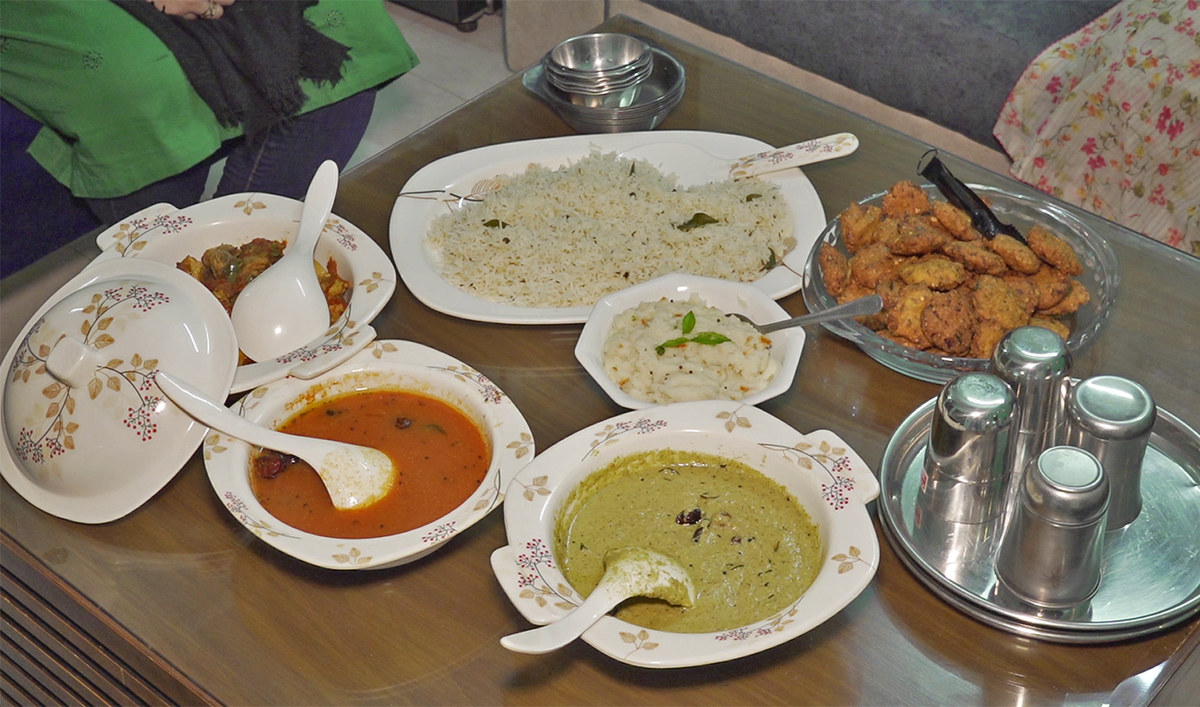In Pakistan’s Karachi, immigrants from South India have been preserving the taste of Tamil food for decades
Karachi: In search of better life prospects, Ravi Shankar Swamy’s grandfather migrated to the port city of Karachi from the southern Indian state of Tamil Nadu in the 1930s. The Swami family was among a few hundred others who brought with them the rich taste of Tamil cuisine, which has been transmitted over decades and adopted some of the ingredients common to present-day Pakistan.
The Sindh province of southern Pakistan is home to a small community of Tamils, a Dravidian ethno-linguistic group, who migrated from southern India in the 1930s. According to community members, there are about 5,000 Tamils currently living in Pakistan, among whom are Muslims, Hindus, and Christians. Some of these families have settled in the Pakistani commercial and culinary hub of Karachi since the British colonial era before Partition.
The small community speaks Tamil, the official language of the Indian state of Tamil Nadu, while some of its notable dishes include dosa (a thin pancake made from a fermented mixture of ground black lentils and rice), idli (a savory rice cake usually served for breakfast), upma (a thick, savory porridge made from dry roasted semolina and vidada) and vidada.
“Over the years, the food [we make in Pakistan] Were in transition. It is inspired by the Pakistani cuisine. Swami, a 41-year-old Tamil Hindu who works as a manager at a software house in Karachi, told Arab News: “Some of the spices came from here.
“[Similarly,] The Tamils of Sri Lanka, their food is also inspired by some Sri Lankan cuisine.”
Tamil cuisine, according to the Swami family, originated in the Indian state of Tamil Nadu which has a rich history.
“We make vada during weddings in the haldi ceremony,” Swami’s sister, Sunita Swamy, said as she kneaded the dough before frying it. “It takes place in the morning in our culture. So, we make daal chawal and this (vada). They are fried.”

The picture taken on July 22, 2023 shows Tamil cuisine prepared by women of the Swami family in Karachi, Pakistan, on July 22, 2023. (AN photo)
The savory fried snack is made from split chickpeas and ground lentils that have been left to soak in water overnight.
The Swami’s grandparents moved to Karachi, now a bustling megalopolis of more than 15 million, when the South Asian port city was thriving under British rule, and their fourth generation now resides in Pakistan, according to Swami’s other sister, Renok Swami, who said food and language are what connect Tamils across the world, no matter what religion they practice.
Kolachi (the former name of the port city) was a thriving industry [back then]. So, he (his grandfather) came for better prospects sometime in the late 30s,” Renuka said. “In Sindh, particularly in Karachi, there will be about 300 families. They are spread in different areas of Karachi. In a land where tamil [language] Strange, he’s kind of a connected person.”
Swami’s mother Annadanam Swami shared that she makes dosa on special occasions as it requires a lot of efforts.
They first grind the rice and black lentils before combining the two and adding tarqa (hot oil or ghee in which spices and onions are stir-fryed and browned), according to Annadanam. Then it is fried in a minimum amount of oil in a non-stick frying pan.
“People in India mostly make it daily. It’s everywhere now, but it originated in Tamil Nadu. Before, only Tamils made it.” The filling is a sauce. It is up to people to have it with potato filling [too]. Tamils will have it with chutney only. Now there are so many variations and fillings.”
Many people think that dosa is the only Tamil food, but the truth is that Tamil cuisine is dominated by rice, according to Swami.
“He. She [Tamil food] was here [in Pakistan] Since the 1940’s, but it came to prominence in the early or late 90’s along with Dosa. Most people know dosa.
“As my father also used to say they weren’t used to eating roti at first. It was all rice. Tamil Nadu is a rice-eating nation. Roti came later. If you don’t eat rice, you’re not a Tamil. We grew up hearing that.”
#Elie #Saab #opens #flagship #boutique #Monaco










